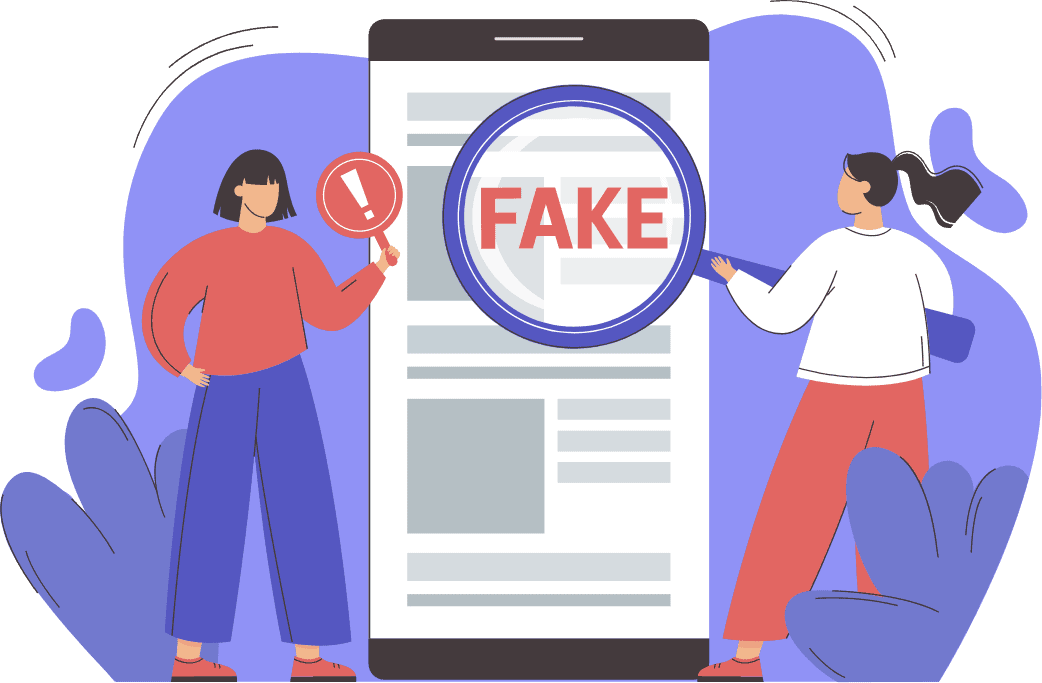8. Misinformation, Disinformation, and Fact Checking
Misinformation, Disinformation, and Fact Checking
Misinformation and disinformation both involve the dissemination of false or inaccurate information, but they differ in their intent and source.
Misinformation:
Misinformation refers to false or inaccurate information that is shared without malicious intent. It may be spread unintentionally by individuals who are misinformed or by media outlets that have not adequately fact-checked their content. Misinformation can range from harmless rumors and urban legends to more serious misconceptions about science, health, politics, or other topics. Some examples are Inaccurate statistics, rumors, conspiracy theories, and viral hoaxes are common forms of misinformation. Why is it important to know about Misinformation? Misinformation can still have harmful effects by influencing public opinion, shaping beliefs, and impacting decision-making, even if it is not spread with malicious intent.
Disinformation:
Disinformation involves the deliberate creation and dissemination of false or misleading information with the intent to deceive, manipulate, or influence people's beliefs or actions. Disinformation is often spread by individuals, organizations, or governments for strategic purposes, such as political propaganda, ideological warfare, or economic gain. Some examples are Fake news articles, forged documents, fabricated images or videos, and coordinated social media campaigns are common forms of disinformation. Why is it important to know about Disinformation? Disinformation campaigns can have far-reaching consequences, including undermining trust in institutions, sowing discord and division, and even inciting violence or destabilizing societies.
In summary, while both misinformation and disinformation involve the spread of false information, the key distinction lies in the intent behind the dissemination. Misinformation may be spread inadvertently, whereas disinformation is intentionally created and spread to deceive or manipulate.
Fact-Checking:
Fact-checking plays a pivotal role in today's information age, where the rapid dissemination of news and content across various platforms can lead to the proliferation of misinformation and disinformation. In this digital era, where information is readily accessible and widely shared, the importance of fact-checking cannot be overstated.
Fact-checking serves as a crucial safeguard for the integrity of information. In a world where misinformation and disinformation abound, fact-checkers act as gatekeepers, verifying the accuracy and reliability of claims, statements, and news stories before they are disseminated to the public. By rigorously examining the evidence and scrutinizing the sources, fact-checkers help prevent the spread of falsehoods and ensure that only credible and trustworthy information reaches the audience.
Fact-checking promotes critical thinking and media literacy among the public. In an age where individuals are bombarded with an overwhelming amount of information from various sources, the ability to discern fact from fiction is essential. By encouraging people to question the validity of information and seek evidence-based sources, fact-checking empowers individuals to make informed decisions and resist manipulation by misinformation peddlers.
Fact-checking plays a vital role in holding those in positions of power and authority accountable. In an era where fake news and propaganda can be used to manipulate public opinion and shape political discourse, fact-checkers act as watchdogs, scrutinizing the claims made by politicians, public figures, and institutions. By exposing falsehoods and inconsistencies, fact-checkers help uphold transparency and foster accountability in public discourse.
Fact-checking contributes to the preservation of democratic principles and the functioning of a healthy society. In democratic societies, an informed electorate is essential for the functioning of a robust democracy. By providing accurate and reliable information, fact-checking helps ensure that citizens can make informed decisions, participate meaningfully in public discourse, and hold their elected representatives accountable.
In conclusion, fact-checking is indispensable in today's information landscape, where misinformation and disinformation pose significant challenges to the integrity of public discourse and democratic processes. By verifying the accuracy of information, promoting critical thinking, holding power to account, and safeguarding democratic principles, fact-checking plays a vital role in upholding the truth and ensuring the reliability of information in our society.





Comments
Post a Comment